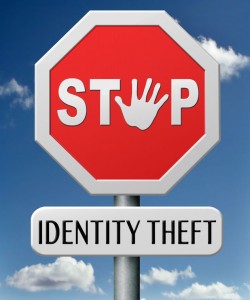 The rapid advancements in technology over the last decade have been staggering. In just a few short years, we saw video conferencing become mainstream. Smartphones and other electronic devices allow us to research information from reliable sources anywhere. Electric vehicles are in development. Long-distance communication is instantaneous; no more trying to talk with someone far away over a telephone full of static. Yes, these developments have changed nearly every aspect of our lives. And mostly for the better.
The rapid advancements in technology over the last decade have been staggering. In just a few short years, we saw video conferencing become mainstream. Smartphones and other electronic devices allow us to research information from reliable sources anywhere. Electric vehicles are in development. Long-distance communication is instantaneous; no more trying to talk with someone far away over a telephone full of static. Yes, these developments have changed nearly every aspect of our lives. And mostly for the better.
Still, there have always been some who would prefer to cut corners instead of doing things the right way. Thieves and con artists have been around for centuries. Unfortunately, the advances in today’s technology have made it much easier for these people to separate unsuspecting people from their money and other assets. According to Motley Fool, there were more than 650,000 cases of identity theft in 2019. In addition, there were more than 3.2 million cases of fraud reported to the Federal Trade Commission in 2019, the most common type being identity theft. The compromising of personal information is a serious problem in the United States, and security officials are concerned that identity theft will rise as more people work from home.
It can take months for a victim of identity theft to clean up the mess it causes. You can help your members by offering an identity theft protection insurance package from IMAC.
Also, here are some tips you can share with your members to keep their personal information safe:
Click carefully. Scammers are constantly sending out fraudulent emails and texts with attached links that appear to be legit. Clicking on these links could enable access to your computer and personal information. Before opening any email, check the sender’s address to make sure the domain is accurate and official. If you don’t recognize the sender or if the domain looks funky, delete the email without opening it. Also, activate your spam folder to catch suspicious emails.
Avoid public WiFi. Sure, it’s easy to log onto your banking sites or check your email while enjoying a hot cup of coffee in your favorite little local shop. But, you don’t want to do this. Public WiFi may not be secure and your information can be easily compromised. When accessing websites with sensitive information, do it from home or use your data plan. Also, check bank and credit card statements carefully for fraudulent charges.
Change your passwords. Yes, we know it can be a pain, but changing your passwords regularly can help keep your data safe. Get in the habit of updating your login information monthly. Choose a password that is easy for you to remember, but hard for someone else to figure out. Avoid using your name or birth date. And use a combination of capital and small letters and a special character.
Report it. If your information is comprised, notify your bank and credit card company immediately. If you were defrauded and lost money, file a police report. Also, report any suspicious emails or texts to your state attorney general’s office or the FTC.
Call us today at for an insurance package that will help your members deal with identity theft.
